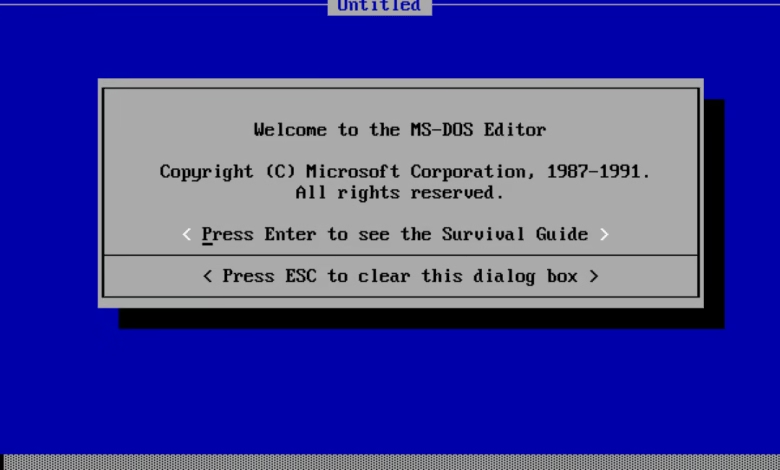Microsoft Revives Classic MS-DOS Text Editor for Linux Users

▼ Summary
– Microsoft released a modern open-source remake of its classic MS-DOS Editor, now called “Edit,” which works on Windows, macOS, and Linux.
– The cross-platform availability has surprised and delighted longtime users, especially those running Linux, who never expected to see the tool on their preferred OS.
– The original MS-DOS Editor, released in 1991, was a major improvement over the primitive EDLIN, introducing full-screen interfaces, mouse support, and pull-down menus.
– Unlike modern Linux editors like Vim, which rely on cryptic commands, MS-DOS Editor was designed to be more user-friendly and intuitive.
– The difficulty of exiting Vim has become a well-known meme, highlighting the challenges posed by modal text editors for new and experienced users alike.
Microsoft has brought back its legendary MS-DOS text editor, now reimagined as a cross-platform tool compatible with Linux, a move that would have been unthinkable when the original launched in 1991. The open-source revival, named simply “Edit,” marks a surprising collaboration between Microsoft’s heritage software and modern operating systems, including macOS and Linux distributions.
Built using Rust programming language, this updated version preserves the nostalgic interface while offering seamless functionality across platforms. Longtime tech enthusiasts have expressed excitement about running a polished Microsoft utility on Unix-like systems, with one Reddit user noting, “After three decades, I’m finally using MS Edit on Linux.” The sentiment highlights how far computing ecosystems have evolved since the early days of command-line interfaces.
The original MS-DOS Editor revolutionized text editing when it debuted, replacing the notoriously difficult EDLIN tool. Where EDLIN forced users to work line-by-line without visual feedback, the 1991 version introduced intuitive features like full-screen navigation, mouse support, and dropdown menus. These innovations made document editing accessible to everyday users rather than just technical experts.
Interestingly, some modern Linux text editors still carry forward the complexity that MS-DOS Editor originally sought to eliminate. Take Vim, for example, its modal interface requires memorizing obscure commands just to perform basic tasks. “The struggle to exit Vim has become its own internet joke,” remarked a Microsoft developer in the project announcement, pointing out how unintuitive design persists even in contemporary tools.
This revival isn’t just about nostalgia; it demonstrates how foundational software concepts endure across generations. By open-sourcing the project, Microsoft acknowledges that good design transcends operating system rivalries. The new Edit tool serves both as a functional utility and a reminder of how far user interfaces have progressed, while some challenges from the early computing era stubbornly remain.
(Source: Ars Technica)





